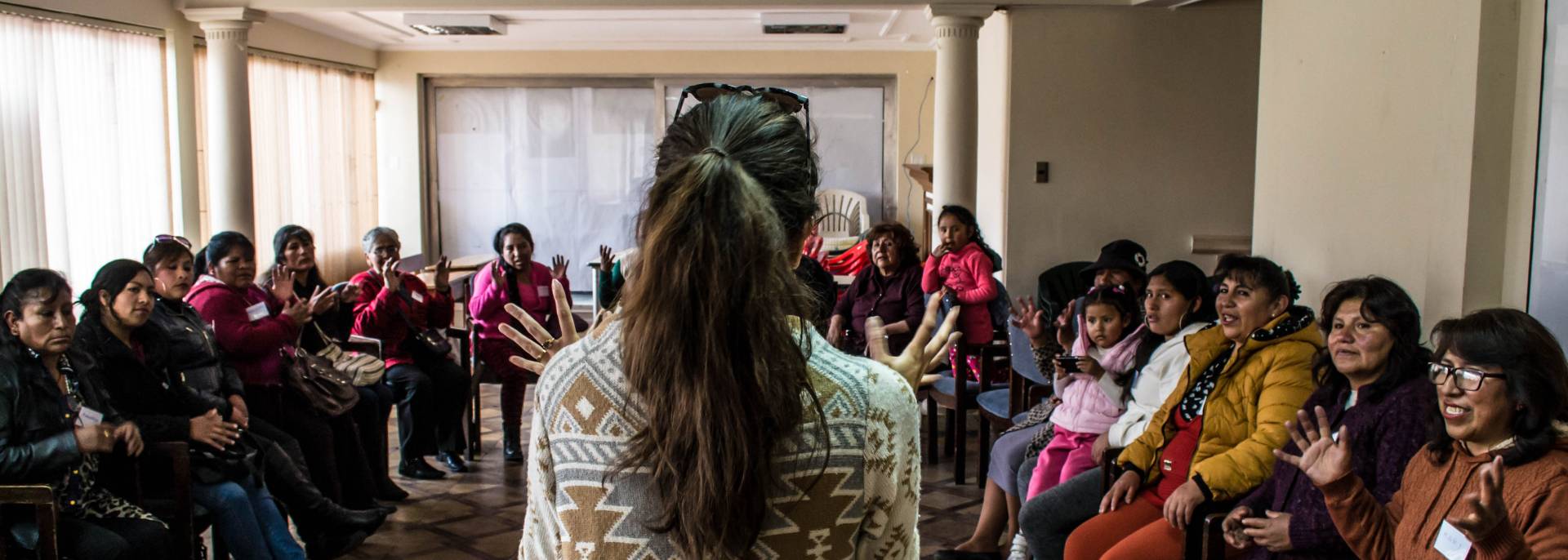In a country plagued by corruption, how can you prevent another toxic mining spill? Is it possible to reduce malnutrition without listening to both food consumers and producers? Or, advance women’s economic development when their needs are mere footnotes in energy policy planning? For this, you need to partner with courageous and determined civil society organizations whose efforts ensure the voices of people burdened by persistent social ills are heard.
That is exactly what the Citizen Agency Consortium aimed to do. This unique five-year-long strategic partnership between ARTICLE 19, Hivos, IIED, and the Dutch Ministry of Foreign Affairs ended in December 2020. The end-term evaluation of the consortium assesses its effectiveness, relevance, sustainability and efficiency for learning as well as accountability purposes. Hivos has posted a page on its website dedicated to the evaluation where you will find relevant reports, case studies and policy briefs.
Four thematic program evaluations
The partnership forged alliances with over 100 civil society organizations in 15 countries. It strengthened their lobby and advocacy capacities to achieve programmatic goals in these thematic areas: Green and Inclusive Energy, Open Up Contracting, Sustainable Diets for All, and Women at Work.
Each of these programs has been evaluated. The final reports and accompanying case studies are available on a dedicated web page.
“Navigating Messiness”
Eight important points emerged from the thematic program evaluations. They became the agenda topics of a two-day synthesis event and are summarized in the summit report, “Navigating Messiness,” which focuses on bringing about change in complex circumstances.
The eight-chapter report was written by Karel Chambille and Wenny Ho, who managed the final evaluations. In one chapter, the authors assess the use of outcome harvesting to monitor lobby and advocacy results. In another, they discuss ways to improve local ownership and underline the importance of partner participation in project design, capacity development, program management structures and grant-making.
“The Hidden Life of Theories of Change”
“The Hidden Life of Theories of Change,” a policy brief written by Wenny Ho and Wageningen University colleagues Margit van Wessel and Peter Tamas, critically assesses the Theory of Change concept. The brief focuses on the way a Theory of Change relates to advocacy practices. “One common criticism,” the authors write, “is that Theory of Change is often used as a framework that fixes agreements rather than as a living, guiding tool that helps reflection and adaptation.”
Using the work of the Citizen Agency Consortium, the authors describe the risks of highly detailed program-level theories of change. While they “may be much appreciated in donor review processes, they risk handicapping advocates’ day-to-day practices as well as ownership building. (…) (They) can be an instrument of control where ‘buy-in’ is required.” Following their conclusions, the authors suggest eight thought-provoking recommendations that will resonate with many.
Hivos and the consortium
Hivos is enormously grateful for the expertise, hard work and creativity of our partners and civil society organizations over the last five years. We hope these final evaluations will inspire peers around the world. As for Hivos itself, they will help us design even more effective and efficient programming in the future.





